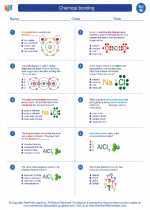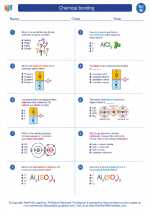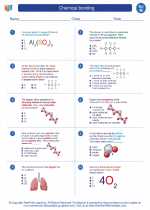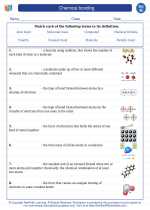Proton
A proton is a subatomic particle found in the nucleus of an atom. It carries a positive electrical charge, and its mass is approximately 1 atomic mass unit (amu). The number of protons in the nucleus determines the identity of the atom, as each element has a unique number of protons.
Properties of Protons
1. Charge: Protons carry a positive charge of +1.
2. Mass: The mass of a proton is approximately 1.67 x 10-27 kilograms.
3. Location: Protons are located in the nucleus of an atom.
Role of Protons in Atoms
Protons play a crucial role in determining the chemical and physical properties of an element. The number of protons in the nucleus, known as the atomic number, determines the element's identity. For example, all atoms with 6 protons are carbon atoms, and atoms with 8 protons are oxygen atoms.
Study Guide
- What is the electrical charge of a proton?
- Where are protons located in an atom?
- What is the mass of a proton?
- How do protons contribute to the identity of an element?
Understanding the properties and role of protons is essential in comprehending atomic structure and the periodic table of elements. It forms the basis for understanding chemical bonding, nuclear reactions, and the behavior of matter at the atomic level.
.◂Science Worksheets and Study Guides Eighth Grade. Chemical bonding

 Worksheet/Answer key
Worksheet/Answer key
 Worksheet/Answer key
Worksheet/Answer key
 Worksheet/Answer key
Worksheet/Answer key
 Vocabulary/Answer key
Vocabulary/Answer key
